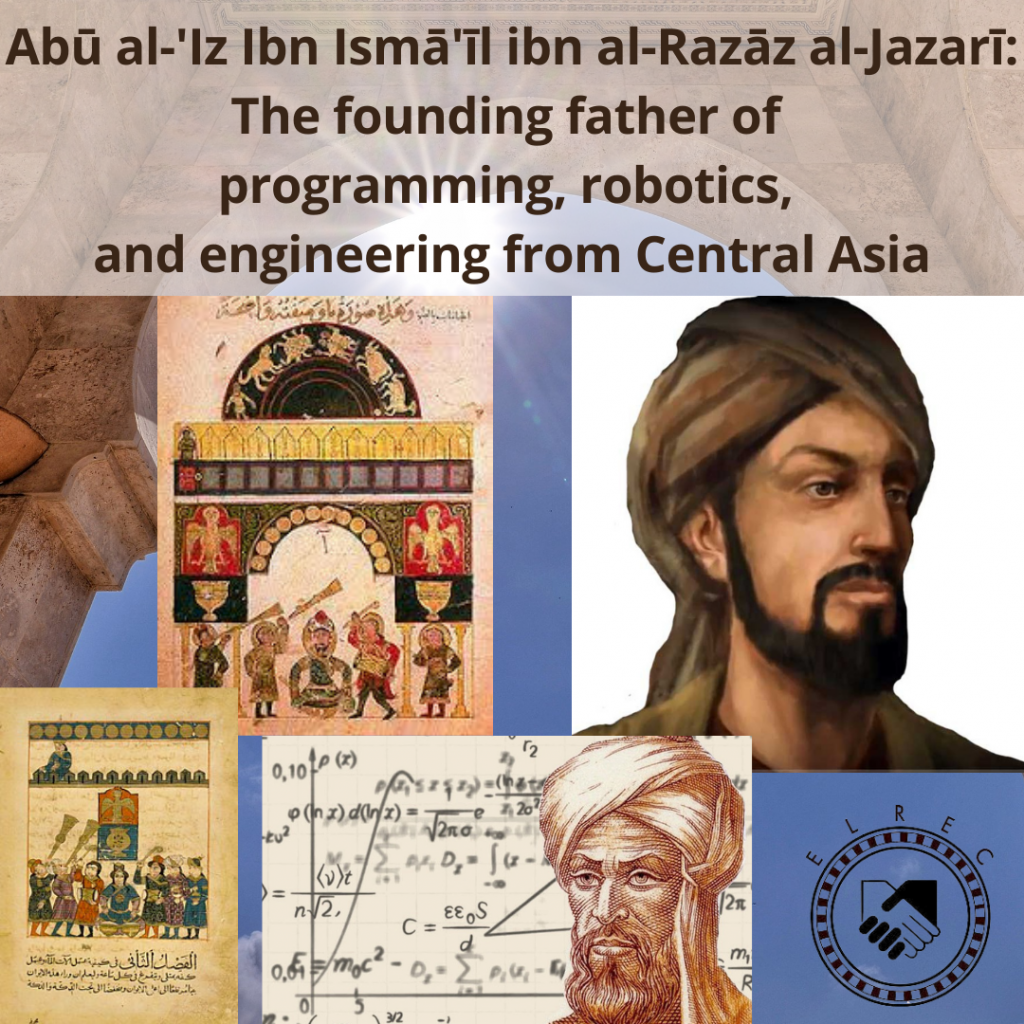Abū al-‘Iz Ibn Ismā’īl ibn al-Razāz al-Jazarī (1136-1206) was an important Arab Muslim scholar, artist, astronomer, inventor and mechanical engineer from al-Jazira, Mesopotamia Due to his fundamental mechanical inventions, al-Jazari has been described as the “father of modern day engineering”, and due to his invention of an early programmable humanoid robot, he has been hailed as the “father of robotics”. Al-Jazari is considered just as important an inventor as Leonardo da Vinci. The most significant aspect of al-Jazari’s machines are the inventive mechanisms, components, ideas, methods and design features which they employ.
Al-Jazari was born in Jazari (modern-day Cizre, Turkey). Just like his father he worked as the head engineer in the city of Diyarbakır during the reign of the Artuqids dynasty. In 1206 he wrote “The Book of Knowledge of Ingenious Mechanical Devices” about the construction of more than 50 mechanisms, including clocks, coded locks, and robots.
Al-Jazari invented five machines for raising water,as well as watermills and water wheels with cams on their axle used to operate automata, in the 12th and 13th centuries, and described them in 1206. It was in these water-raising machines that he introduced his most important ideas and components.
#islamopobiaawarenessmonth #saynotoracism #elrec #edinburgh #islamophobiainscotland

Connect Outdoors
As a partnership with #ConnectOutdoors, and to promote and remove barriers to access the Scottish outdoors and hiking, we are offering a fully funded 7-week





